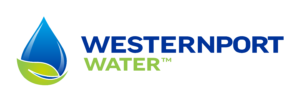Frequently Asked Questions
Answers to commonly asked questions about the project.
What will a recycled water wetland storage look like?
It is too early to know exactly what the recycled water wetland and storage will look like, however it will be a purpose-built wetland storage lagoon or series of lagoons.
As the wastewater flows through the wetland, native wetland plants will take up nutrients and capture suspended solids, improving water quality.
What quality will the recycled water be?
The performance of the wetland will determine the quality of the water at the end of process however, there is an opportunity to supply Class C to customers in close proximity to the King Road area regardless of the wetland.
This quality of water is predicted to have a positive impact to the environment.
When will construction occur?
Subject to planning approval, design options will be developed for consideration, and we estimate construction to commence early to late 2026.
What can we expect during construction?
We do not anticipate any impacts to wastewater services.
Residents nearby may experience a slight increase in noise, dust, as a result of increased traffic on King Road, (truck movement) and temporary disruptions due to the works.
Has a wetland been used elsewhere to store and treat recycled wastewater?
The Phillip Island or Cowes floating wetlands are part of a research pilot project with CSIRO and Blue Carbon Lab to determine how effective plants are, in our typical environment at improving water quality and reducing greenhouse gas emissions.
Findings from this pilot project, a Teal Carbon Project for King Road completed by the Water Research Laboratory, (UNSW Sydney) and the current state of knowledge in the-wider water industry are being used to inform the design of the King Road recycled water wetland storage design.
Wetlands for wastewater storage and treatment are designed for nutrient and pollutant removal mainly through UV treatment, plant uptake, natural filtration and sedimentation retention.
Will recycled water be made available for adjacent landholders?
There is potential for a proportion of the Class C recycled water to be used off-site by properties in close proximity to the King Road site.
Customers can contact us anytime regarding recycled water supply. Alternatively, the project team will be contacting customers near the site to explore the feasibility off-site recycled water supply due course.
What are the potential environmental benefits of a recycled water wetland storage?
A nature-based recycled water storage system with an area of 39ha will provide habitat for species reliant on a wetland ecosystem.
The natural flow of water between the wetlands will provide increased polishing of the water and improving its quality for intended reuse purposes both on and off site.
Introducing a nature-based process will provide water quality benefits and reduce the risk of contamination of groundwater or soil degradation.
Sequestration of greenhouse gases from wastewater through teal carbon will further assist with meeting our Net Zero Emissions targets.
Are Traditional Owners and First Peoples being engaged in the project to ensure cultural values and their aspirations for the site are understood and considered?
The values, knowledge and aspirations for the site from Bunurong people of the South-Eastern Kulin Nation are being proactively sought and considered and will be incorporated where possible.
Will the site be open to the public?
We are looking for opportunities to incorporate areas for public use such as bird watching, however this site will remain a wastewater treatment plant with risks that need to be managed.
How will I be kept updated and informed?
Opportunities for engagement will be made available and evolve as the project progresses.
Project information and updates will be provided on this page of our website.
Why is a recycled water wetland storage being constructed over conventional wastewater lagoon storage?
“Reducing our environmental impact and adapting to climate change, while keeping our services affordable and sustainable, are key customer commitments and regulatory requirements for Westernport Water” was a high focus resulting from our customer consultation.
The anticipated environmental net benefits this option provides as opposed to traditional storage.
Contact us
For more information on Westernport Water’s King Road Recycled Water Wetlands Storge Project please email the project team via E | kingroadwetlands@westernportwater.com.au or call our Customer Service Team on T | 1300 720 711 8.30am – 5.00pm Monday – Friday.

